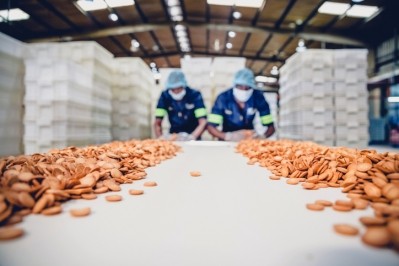Guest Article
Keeping the faith in our resilient sector

Our business, like many across Europe, is having to deal with a rapidly changing situation regarding Covid-19. Changes are happening thick and fast, testing the business world's ability to adapt. Governments are constantly altering restrictions, affecting how we manage our respective businesses almost daily, whether it’s asking for social isolation or school closures, to try and help our countries cope. The daily landscape of our businesses is changing incredibly fast, but we need to keep going.
Take a leaf from the history book
One thing we know from centuries of history is that agriculture is incredibly robust. Even in modern history, there have been two major world wars, Spanish flu, civil unrest, economic crashes, and throughout it all, agriculture has prevailed; and it always will, because, after all, we all must feed our families and our animals. In times of disruption, one of those ‘safe ports’ in industry is agriculture.
We are watching with heavy hearts as other industries face extreme difficulties alongside us. The way things are looking, there will be casualties. For those of us in the agriculture sector, we must not forget the core pillars from which our sector has evolved. The preservation of food safety and security is imperative, along with feed safety and security. Only this way will we work through the temporary upheaval brought about by Covid-19, coming out the other side a bit battered, but no doubt stronger.
Act swiftly and practically
When faced with a challenge that can interrupt business, we must prioritise keeping the supply chain moving. So many depend on it, not just us.
Here at SugaRich, we started consulting and working with trade associations immediately to discuss the necessary industry relaxations we might need in an emergency. Among those - altering drivers’ hours to safeguard that the supply chain maintains capability. By working with our trade associations, we ensure that this is achieved safely and efficiently within regulatory tolerances. Our present situation has many of the elements of previous crises, like an unusually bad and long winter or a fuel crisis, where you would stretch drivers’ hours, while still maintaining safety of the workforce. Doing this gives us greater flexibility. These are known mechanisms that we can easily fall back on.
Another example is that we are already consulting with the UK's Department of Transport to obtain additional relaxation of duty/working time. If we start to lose resources due to sickness or parenting needs, this can keep the wheels of industry turning when applied in conjunction with drivers’ hours relaxation.
The UK government's Environment Agency is also very open to discussing temporary relaxations in some permit constraints. Typically, hours of operation or types of operation have already had successful interim variations granted. While these are usually permitted in the very short-term, all such supports help in these challenging times.
So many of our industry colleagues have Environmental Licensing Permits with certain exclusions or limitations. During difficult times we can request derogations on these exclusions to keep a safe supply chain in motion. We must act quickly, and plan for the worst-case scenario. We can’t afford to falter, otherwise we just end up watching our industry fail before us. But expeditious action and communication as well as working as an entire integrated business sector will get us through challenges such as these.
Technology eases the burden
Let’s not forget the numerous benefits of technology. There are so many tools to enable effective home working, which is a huge advantage as we try to maintain momentum by managing our businesses remotely. These tools just didn’t exist during other severe crises, but now we can run our businesses using joined up technology.
Unfortunately, it’s taken something this catastrophic to highlight the full extent of solutions available to us to be able to cope much better. However, in every challenging situation, there is a gift of knowledge – we’ll know better for next time. We can fine tune our contingencies with much more accuracy, efficacy and hopefully, less panic. I don’t speak for just my industry, but all of them, that keep the wheels of society turning.
So even though we thought the worst disruption of recent times was going to be Brexit, we are being tested in a much bigger way. It highlights more than ever, the need for global cooperation. It starts at home in your own business communities; communicate and collaborate and follow official guidance to help keep you and others safe. We’re all in this together.















